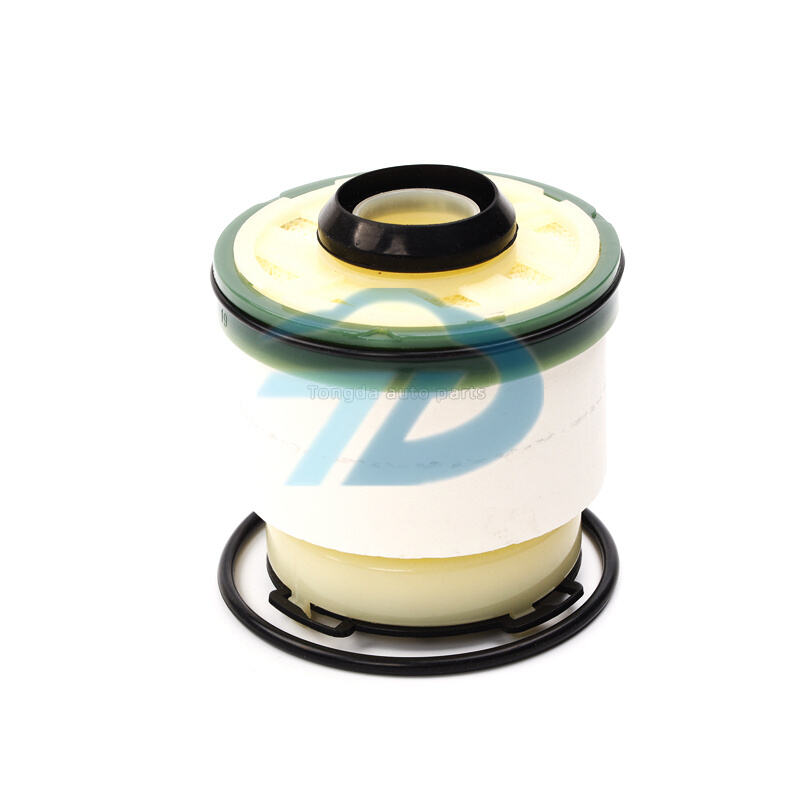Průzkum a procvičování směru zlepšování filtrů
As a key component in the industrial and automotive fields, optimizing and improving the performance of filters is of great significance for improving equipment efficiency, extending service life, and protecting the environment. With the advancement of technology and changes in market demand, the improvement direction of filters is becoming increasingly diversified, aiming to meet the development trends of higher efficiency, environmental friendliness, and intelligence. This article will explore the improvement direction of filters from four aspects: material innovation, structural design, intelligent application, and environmental performance.
1、 Material Innovation: Enhancing Performance and Durability
1. New type of filter media
Developing new filter media is an important direction for improving filters. For example, nanofiber materials have become the key to improving the filtration efficiency of filters due to their extremely high specific surface area and excellent filtration performance. In addition, the research and development of environmentally friendly filter media such as bio based materials and biodegradable materials can help reduce environmental pollution after filter waste.
2. Application of composite materials
Composite materials have shown great potential in filter manufacturing due to their excellent comprehensive properties, such as high strength, corrosion resistance, and high temperature resistance. By designing composite material structures reasonably, the durability and filtration efficiency of the filter can be significantly improved, while reducing weight and energy consumption.

2、 Structural Design: Optimizing Fluid Dynamics and Sealing Performance
1. Fluid dynamics optimization
By utilizing Computational Fluid Dynamics (CFD) technology, precise simulation and optimization of the internal structure of the filter can reduce fluid resistance, improve filtration efficiency, and reduce energy consumption. By optimizing the fluid channel design, ensuring uniform distribution of fluid, reducing eddies and turbulence, and extending the service life of the filter.
2. Sealing technology innovation
Sealing performance is the key to the long-term stable operation of filters. Adopting advanced sealing materials and structural designs, such as elastic sealing rings and double lip seals, can effectively prevent fluid leakage and improve the sealing performance of the filter. In addition, the development of an intelligent sealing monitoring system can monitor the sealing status in real time, provide timely warnings, and ensure the safe operation of the filter.

3、 Intelligent application: improving monitoring and maintenance efficiency
1. Intelligent sensor integration
Integrating intelligent sensors into the filter can monitor key parameters such as filtration efficiency, pressure loss, and service life in real-time, providing data support for equipment maintenance. By using wireless communication technology, monitoring data can be uploaded to the cloud for remote monitoring and early warning, improving maintenance efficiency and reducing operating costs.
2. Prediktivní údržba
Develop a predictive maintenance system for filters based on big data analysis and machine learning technology. By analyzing the historical operating data of the filter, predicting its future performance trends, and developing maintenance plans in advance, equipment downtime and failures caused by filter failure can be avoided.
4、 Environmental Performance: Promoting Green Manufacturing and Sustainable Development
1. Aplikace materiálů šetrných k životnímu prostředí
Promote the application of environmentally friendly materials in the manufacturing process of filters, such as biodegradable plastics, recycled materials, etc., to reduce carbon emissions and environmental pollution in the production process. At the same time, optimize filter design, improve material utilization, and reduce waste generation.
2. Filter recycling and reuse
Establish a comprehensive filter recycling system to dismantle, clean, test, and reuse waste filters, reducing resource waste. Through technological innovation, develop reusable filter components, extend the overall service life of filters, and promote the green and sustainable development of the filter industry.
závěr
The improvement direction of filters involves multiple aspects such as material innovation, structural design, intelligent application, and environmental performance, aiming to meet the trend of more efficient, environmentally friendly, and intelligent development. Through continuous exploration and practice, the filter industry will continuously break through technological bottlenecks and provide strong support for the development of the industrial and automotive fields. In the future, filters will become more intelligent and green, contributing to the achievement of sustainable development goals.
 Česká republika
Česká republika EN
EN








































